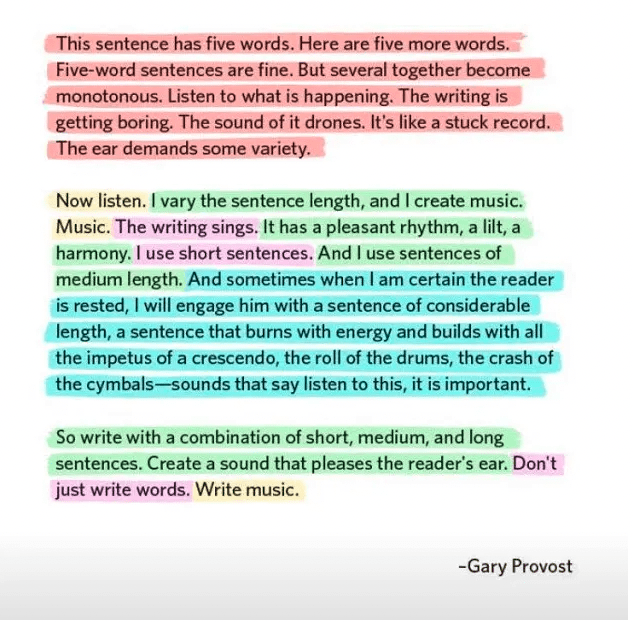If you’ve spoken to me lately, you might know I’m on a bit of a mission to bring some clarity to the term ‘personality’ when it comes to brand voice.
You might have been swayed into believing that “personality sells”. Personality doesn’t sell. It gets attention and it can differentiate. But the selling part takes more than some snazzy lines. There has to be some substance behind it.
And really, you don’t just want attention, you want to influence.
Your brand needs a defined personality; that bit is undisputed. But having a personality doesn’t mean you have to be the boldest, the funniest, the loudest. Your brand doesn’t have to be an ‘extrovert’ to stand out. There are funny, quirky, playful brands I love and covet, and ones I have helped shape. But if it’s not the right fit for you, you don’t have to force it just because you think it’s the only way to be noticed and remembered.
Whether you are bold and entertaining, or a bit more subdued but equally passionate about what you want to share with the world, there’s a place for you to use your voice powerfully, purposefully and with impact.
Many of my clients are highly experienced, intellectuals, and well-respected in their field. They often share profound, differentiated ideas. They are not serious, but they do want to be taken seriously in the right context.
They are thought leaders, and what their ideas and their voice need is gravitas.
Which is, in my opinion, one of the more underrated qualities for people to aspire to when they think of personality.
Gravitas comes from the latin noun meaning weight or heaviness. It’s something we more commonly associate with someone who is speaking; the kind of person who knows how to captivate a room and have listeners hanging off their every word. They are trusted, respected and their ideas are valued. They speak with a sense of conviction that leaves you unquestioning.
Gravitas isn’t about seriousness, but rather influence, importance and authority. Those with gravitas are perceived as trusted leaders.
Gravitas happens when you combine confidence, emotional intelligence, clarity and authenticity. When you’re speaking to an audience, non-verbal cues play a significant role in communicating gravitas: eye contact, gestures, posture, expressions and the pitch, pace and tone of your voice. Good orators know that you can be a witty speaker, but that it’s also possible to shift your tone when you really want information to stick
So, if you’re a brand that wants to be taken seriously, how do you communicate gravitas in writing (such as on your website) so that people sit down, lean in and pay attention?
Be clear about where you stand
Brands with gravitas know their values and are unwavering. They take a stand, and stick with it. They are clear about what matters to them, and where there are boundaries about what they will and won’t accept. They have the courage to stay true to these values, even when it may be polarising. Their messages are guided by these values.
Know what you want
Brands with gravitas are also strong in their conviction about what they want to achieve - for themselves, for their clients, for their peers, their communities and the world around them. They keep their messaging focused on their own strengths and they’re not distracted by, or reactive to, fads, phases or trending topics.
Use words with weight
Be thoughtful with your word use, but there’s no need to be formal. Use simple, direct and clear language. Avoid jargon or technical terms. Fancy words don’t make you sound smarter, they make you sound less relatable. Avoid diminishing, or weak, words: things like ‘just’, ‘I feel’ or ‘I think’.
Have original thoughts
The world doesn’t need more AI-generated content; it needs nuanced perspective, lived expertise, research, case studies, lessons and substantiated advice. Brands with gravitas share specific, rather than generic messages. They understand their audience through research, and speak into the things that matter most to them.
Focus on where it flows
Write about the stuff you know. When you're clear about your messaging architecture (or messaging pillars), you can consistently communicate from your zone of genius. This is where your ideas will flow, you'll share with greater ease and authenticity; your audience will feel your interest and expertise.
Bring cadence into your copy
You’ll likely know that when you’re speaking, the pace at which you deliver a message can influence its impact. When you’re writing, you do have control of the cadence at which your reader consumes your words. Similar to speaking, change up sentence structure with different lengths to shift emotion, create anticipation and draw attention to important parts of your message. Here's an oldie but a goodie:
Take a pause
You know what good orators also know? They know when to be silent, when to pause for audience response, when to leave a thought hanging in the air with suspense. How do you bring this into written content when your reader is consuming your content at their own pace? The aim of punctuation, ultimately, is to control the tempo and flow of your prose. Using punctuation you can actually create feelings of anticipation, curiosity, satisfaction and resolution.
We know that fullstops (or periods) signal the end of a sentence, and therefore the end of an idea. But what about a question mark? It comes at the end of a sentence, yet opens up a moment of thoughts. While it implies you need an answer, leaving a question unanswered creates a moment of suspense.
Ellipses (that’s three dots…) can be used to create space or indicate that something is unfinished. A moment to pause and reflect.
Semicolons are another great little tool for controlling the way that thoughts flow, in particular, they signal shifts in logic. Used well, they give your reader the sense that they need to prepare for a development, like a crescendo heading towards an impactful statement. They’re also handy to convey a stream of consciousness.
Back up your ideas
Credibility and trustworthiness should be high on your list from an SEO perspective (search engines love to see it), but equally, human readers are in search of high value content. Citation of sources, quotes, relevant, high-quality links, pointing to evidence or research — all these things show a deeper knowledge and understanding (and a willingness to share, not gatekeep, helpful stuff).
Lean on EQ
Brands with gravitas know how to acknowledge (not avoid) potentially controversial, challenging or polarising topics. They have the social awareness and emotional intelligence to communicate with respect, empathise with others and present balanced viewpoints. They use language that respects broader ethics, such as representation, bias, diversity and inclusion.
Persuade, ethically
The role of marketing is really to persuade people to spend their money on your product or service. Thought leadership, in particular, comes with influence. But influence isn’t about getting someone to do something they don’t want to; it’s about helping them see something from a new perspective. Ethical persuasion is about presenting credible information in a way that it leads your readers to come to their own conclusion. We shouldn’t weaponise what we know about our customers (eg, their emotional triggers) to influence them into purchasing. Refraining from pushy or sleazy sales techniques sends the message that you’re confident that your work, and the knowledge you share, speaks for itself.
One of the key messages I share with clients is that their messaging needs to show, rather than tell. Infusing elements of gravitas into your marketing content demonstrates an innate confidence. It enables your reader to feel a sense of comfort and trust as they consume your words. If you want to create influence with your brand, reach out to book a call, I’d love to chat.


